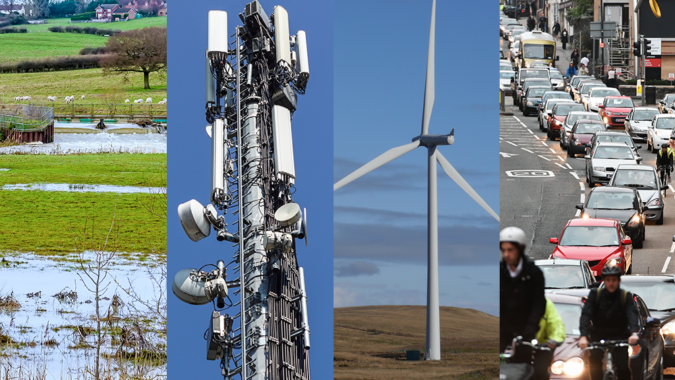Infrastructure, like every other part of the economy, is experiencing the impact of the ‘fourth industrial revolution’ created by advances in data, digital systems and artificial intelligence.
Clients, government agencies, industry bodies and academics are beginning to understand and embrace how these technologies will change everything from the way we work together, to the way we operate and maintain the country’s infrastructure systems.
They offer unprecedented opportunities to transform infrastructure, increase capacity and make it more efficient and smarter.
This is truly exciting and opens up areas of massive potential. This could be through trialling autonomous vehicles across the UK, rolling out the Digital Railway to increase capacity over the next 25 years, or using data analytics from sensors to inform maintenance decisions.
Digital technologies can significantly increase the efficiency of our infrastructure systems. They can also make infrastructure systems more resilient, for example by providing information enabling rail passengers to re-route in real time if there is congestion. However, one downside is the potential for reduced resilience to unforeseen events.
To understand these less visible implications, the National Infrastructure Commission asked Arup and Dr Tom Dolan from University College London to investigate the impact of the increasing reliance on digital systems for infrastructure resilience. Our findings have been published today. This is a stand-alone piece of work that complements the Commission’s wider work on technology and infrastructure.
Our study involved research, a literature review, and cross-sector workshops. Cyber security is important, but stood outside our remit. Instead, we focused on accidents triggered by failures somewhere in a system and the extent to which these are inevitable. The end point that infrastructure system failures can lead to may be very similar, whether it’s triggered by cyber-crime, natural disasters or other system accident.
Infrastructure systems are already tightly coupled (small failures result in a chain of unstoppable events) and complex (behaviour can’t be predicted from the behaviour of individual components). Adding digital systems into the mix is likely to increase complexity, so we need to be aware of this, even if its unavoidable.
Our existing infrastructure has all sorts of vulnerabilities. While a digital overlay to infrastructure systems can improve aspects of performance and oversight, it won’t remove pre-existing physical vulnerabilities, and this interaction may indeed produce new properties which present their own risks.
These observations shouldn’t stop or reverse the implementation of new technology to improve resilience, but they should remind us to do so with careful consideration of the full implications of our decisions and not inadvertently create future problems.
UK infrastructure has traditionally operated largely in silos. However, an increased focus on resilience – whether digital or conventional – will I’m sure encourage greater cross-sector oversight to manage system interfaces and address interdependencies. I’d like to see resilience become a ‘golden thread’ that runs through all of government and industry’s infrastructure planning decisions.
Our report shows what we can start doing now to make that happen. Indeed, there’s a great opportunity here for the UK to provide global leadership in shaping the resilience of digital systems in infrastructure.
I look forward to seeing how the Commission and wider infrastructure community can collaborate to exploit the opportunities created through the application of new technologies, and to address the resilience challenges posed by these systems from the outset.
Dr Juliet Mian is an associate director in Arup’s Infrastructure Advisory team



